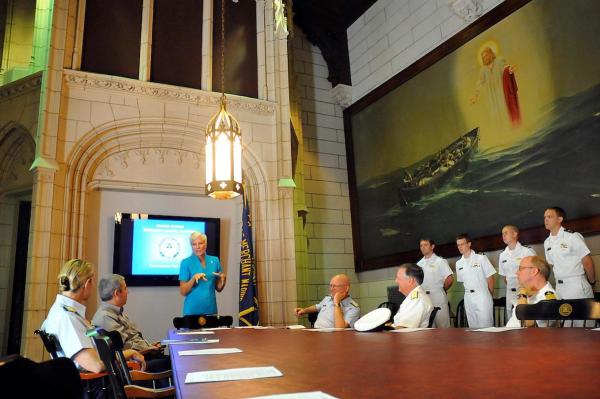Study: Youths' Level of Faith Depends on Community
When it comes to adolescents genuinely committing to their faith, a study found that their social environment determines how strong their faith level will be.
The study, conducted by Professor David Dollahite from Brigham Young University, operated by The Church of Jesus Christ of Latter-day Saints, took on a different approach from simply reporting numbers and statistics on how devout young people are. He reached each teen on a personal level by allowing them to share their views on different variables.
Dollahite took 80 teens, 10- to 20-year-olds of various faith communities, including Christian and Muslim, from northern California and New England and asked for their views on different topics.
For example, a 15-year-old Christian and Missionary Alliance girl shared on religious traditions, rituals and laws that "[Church is] a break in the week. It’s something that’s consistent, that we do every week together. We get in the car and go to church and come home. And it’s nice to sort of step back from the busyness of everything and just have something that we all do together."
According to the study, titled “Seven Anchors of Religious Commitment,” parents, religious leaders, a faith community, rituals and traditions, faith tradition or denomination, God and sacred texts are crucial to a young person's faith.
Emily Layton, who conducted the analysis as part of her M.S. thesis for the study, explained to The Christian Post, “Relationships were extremely important – relationships with parents, with church leaders and relationships with people in their faith community. That was interesting to me, the relationships with other adults in their faith community as well as other younger teens.”
An adolescent’s religiosity is predicative of greater pro-social behaviors, less depression, less substance use, delayed sexual intercourse, pro-social values, social control, social capital, moral development and family relations and dynamics.
The study notes that there are several possible reasons why social associations influence commitment to their faith. For example, Layton said, “It was common among all faiths, obviously some faiths were more specific to some anchors, but traditions and rituals are very important to adolescents, the way we celebrate religious holidays and religious events, it was very important to them and to their commitments.”
A 20-year-old Lutheran young woman said, “There’s a lot of strength that I draw from being able to share communion with other believers and the reminder and the forgiveness that comes through that is definitely, I guess strengthening.”
While few Jewish teens spoke about God, it was very noticeable that their commitment to their traditions and rituals were very much generators to how important their faith was to them.
Keeping the traditions and a strong relationship with their church community not only helps teens in their faith commitment but also gears them toward seeking a religious network once they leave home and go to college – which tends to be a period when many either leave faith or place their faith on the backburner.
Layton found that “some of the adolescents [who] had already gone away from school … talked about the importance of finding the people they could worship with in school.”
As a Mormon mother of four and with a baby on the way, she shared that the findings definitely influence her parenting.
“It opens my mind to see the different dimensions of our religion that we can live more fully, different traditions that we can incorporate in our lives or be consistent, different ways I can encourage relationship with my kids and other members of my community,” she said. “Just helping me see the full picture of the religious experience will definitely help me expose them and encourage them so they can get a broader commitment to their religion instead of just reaching the scriptures and going to church.”
She concluded by emphasizing that it’s important for teens to have a special experience with their religion, even if “a lot of traditions don’t have to be necessarily religious; it just helps our children especially younger ones to look forward to those activities. They are more involved in that experience in something that we are doing together as a family.”






















